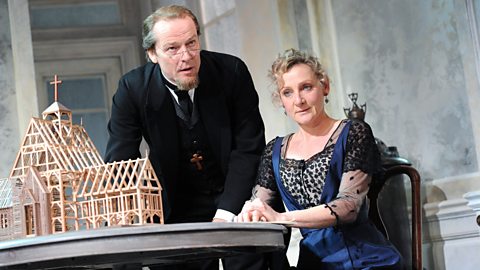Acting and performance
Next itâs essential to describe the performances of the actors in the production. How did they make the role their own? Were the performances good or bad? Remember you need to give concrete reasons and not just an ill-informed opinion.

Try and include the following elements:
- Who impressed you and why?
- Think about characterisation and how this was achieved - voice, gesture, body language and so on. Be specific about what an actor did at a particular moment to have an effect on the audience and communicate effectively.
- Analyse movement around the space and what it communicated and consider the use of stillness too.
- Evaluate the vocal choices made - significant pauses, tone of voice, changes in pitch or volume that worked well. Comment on what this communicated to the audience.
- Relationships on stage: how were these achieved and how did they develop or change? Focus on how this was realised in the acting, not on the story of the play.
Henrik Ibsenâs famous play, Ghosts, features what critics have called âdouble density dialogueâ. This is when characters say one thing and mean another. One character could appear to be complimenting someone but the deeper meaning might be quite different. If you were reviewing this play youâd need to consider whether the actors convey this successfully and how they achieve this. The theatre critic, Michael Billington demonstrates this point in his description of Iain Glenâs performance in the 2010 production of Ghosts:
Glen himself has good moments as Manders, as when he holds one of Mrs Alving's radical volumes between thumb and forefinger as if it were infectious.
